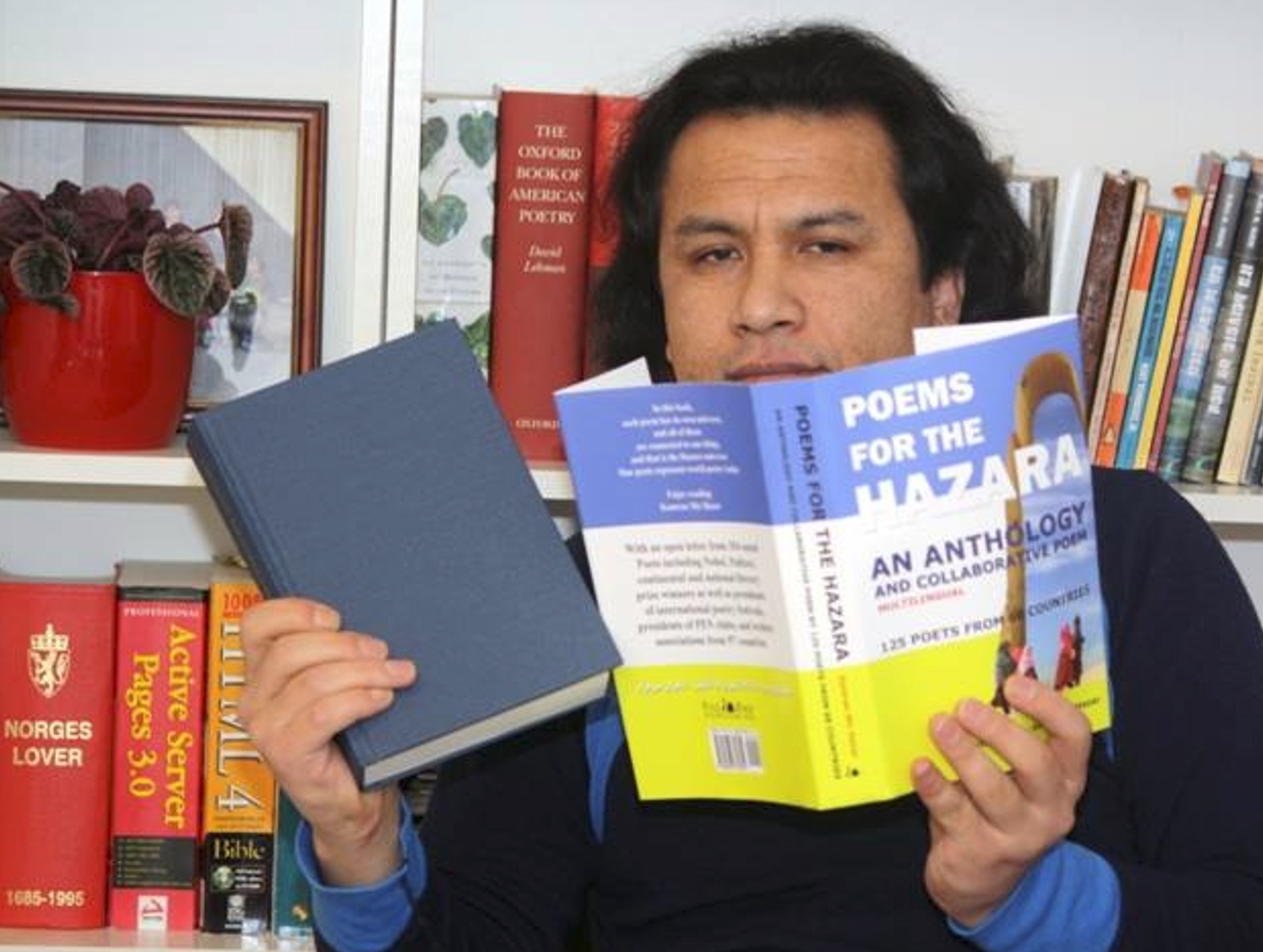
May 19, Hazara Culture Day: A Celebration of Resilience and Memory
Honoring a people too often erased, through poetry, history, and the breath of Hazaristan
Reading time: (Number of words: )
Today, on Hazara Culture Day, we honor a people whose history has too often been silenced, erased, or misunderstood. The Hazara have endured, preserved, and now rise to reclaim their voice through art, poetry, and culture. As editor of Kabul Press?, I’m proud to share this tribute, a reflection in verse and prose that journeys through memory, love, land, and the enduring spirit of Hazaristan.
This piece is both an invitation and an offering: to listen, to remember, and to witness the rich tapestry of a culture that continues to write its own story, line by line, verse by verse.
May 19 - Hazara Culture Day
Today we celebrate the resilience, the richness, and the rhythm of a people too often written out of history,
a nation now writing its own, line by line, verse by verse.
As Ban’ya Natsuishi, Japanese poet and director of the World Haiku Association, reminds us:
“"To our displeasure, the history of some people, like the Hazara’s, is often distorted or destroyed.
The Hazara people of Central Asia overlapped various cultures; they enriched our civilization."”
Poems for the Hazara, the anthology I had the honor to edit, gathers 125 poets from 68 countries,
each poem a universe, all orbiting the Hazara universe.
From Jack Hirschman (USA) to Micere Githae Mugo (Kenya),
Zindzi Mandela (South Africa) to Khal Torabully (Mauritius/France),
Julio Pavanetti (Uruguay/Spain), Raúl Henao and Elsa Tió (Colombia and Puerto Rico),
Anne Waldman (USA), Gabriel Rosenstock (Ireland),
Mamang Dai (India), Erling Kittelsen (Norway), Berry Heart (Botswana),
Rodrigo Verdugo (Chile), Tamer Öncul (Cyprus), Germain Droogenbroodt (Belgium/Spain),
and the list flows on, a caravan of verses crossing deserts and silence,
a chorus of memory defying erasure.
And within these pages breathe the many tongues and textures of poetry:
haiku and ghazal, free verse and spoken word,
Hazara raft, spun through the seismic hush of the dambura,
its strings streaming the rivers of Hazaristan,
songs flowing, bending, carving memory into stone,
into the rocks of the Hazaristan mountains,
becoming Salsal and Shahmama,
resonating with Rumi, and older ways,
the listening body of the land,
as Salsal turns left to take another silent māx.
And in those stones,
the breath of Dawlat Beig Sultan,
whose body, they say, dissolved into the mountains,
into root and ash, into barley fields and bitter almond groves,
his soul spiraling through the cycle of becoming:
from solid to plant, from plant to beast, from beast to human,
echoing not only Rumi, but the older ways:
those who heard the mountain breathe,
and moved with it,
in rhythm, in silence, in fire.
Here, too, is the childhood of Rumi,
cradled by his Hazara Ābʌy and Ātʌy,
echoes of his first metaphors rising
from Hazaristan soil.
Today, we offer these poems not as history rewritten,
but as memory reclaimed,
not as elegy, but as breath, as seed, as fire.
And when the wind arrives,
the verses rise as the Ʌždʌr,
the ancient Hazara dragon,
not in fury, but in motion,
its spine rippling with the earth’s exhale,
its limbs circling the invisible,
gathering from the air what was scattered,
pulling it inward,
and unfurling it,
gesture by gesture,
into a sky not open,
but listening.
— Kamran Mir Hazar
Glossary
Hazaristan: Hazara land, Hazara country.
Raft: A Hazara melody or musical expression, often played with the dambura.
Salsal: The male Buddha of Bamiyan in Hazaristan.
Shahmama: The female Buddha of Bamiyan in Hazaristan.
Rumi: Poet and philosopher of Hazara origin Jalāl al-Dīn Muḥammad Rūmī
Māx: A kiss.
Dawlat Beig Sultan: The Sultan of the Hazara before the Afghan invasion.
Ābʌy: Mother (in Hazaragi).
Ātʌy: Father (in Hazaragi).
Ʌždʌr: The Hazara version of the dragon, appearing in legends and place names across Hazaristan, such as the Ʌždʌr Valley.
Keywords / Hashtags
#HazaraCultureDay #PoemsForTheHazara #Hazaristan #CulturalResistance #SalsalAndShahmama #HazaraDambura #AzhdarMovement #PoetryAsMemory #EasternWisdom #SpineOfTheMountain #WeAreStillHere #KamranMirHazar #HazaraHistory #HazaraPoetry #ListeningLand #Bamiyan #MemoryAsFire
To explore more voices and stories from Hazara poets worldwide, you can find Poems for the Hazara through [publisher/link here]. Join us in amplifying this vital cultural heritage, for memory is resistance, and poetry, a bridge to the future.
Related Articles
Keyword/s
Highlight
Poet and Information Systems Specialist
Kabul Press? Chief Editor and Publisher
Hazara from Hazaristan

Poems for the Hazara
The Anthology of 125 Internationally Recognized Poets From 68 Countries Dedicated to the Hazara
Order Now








